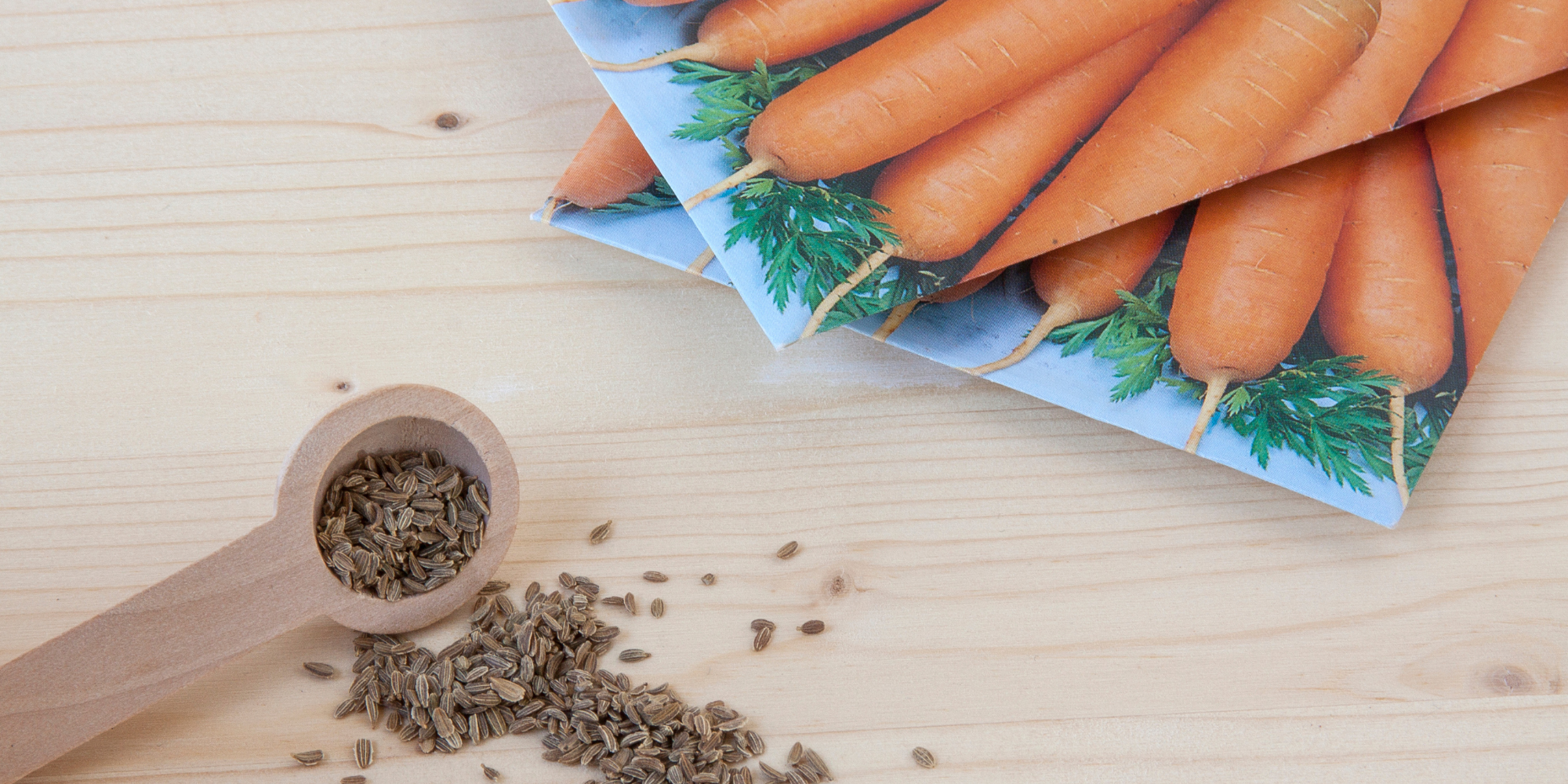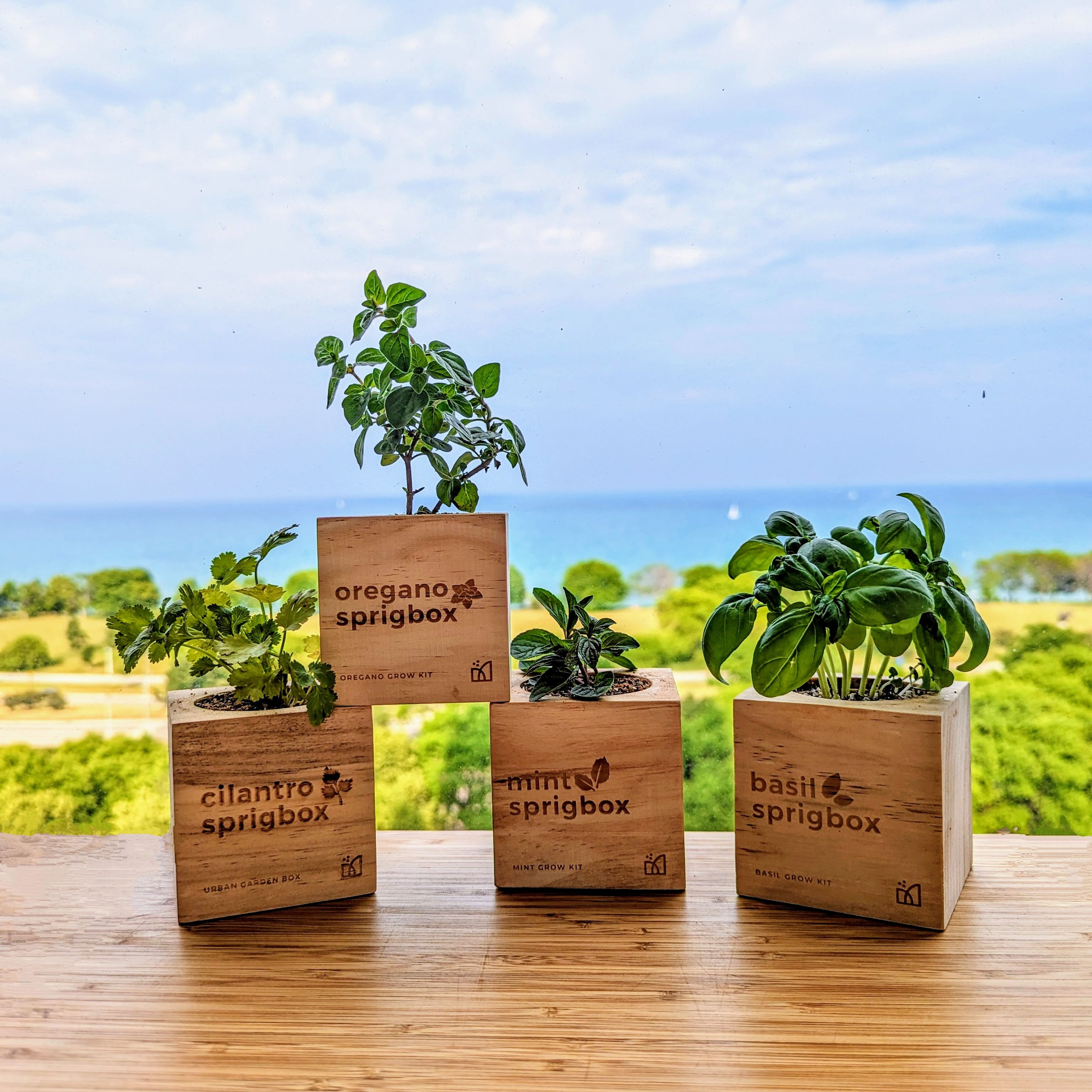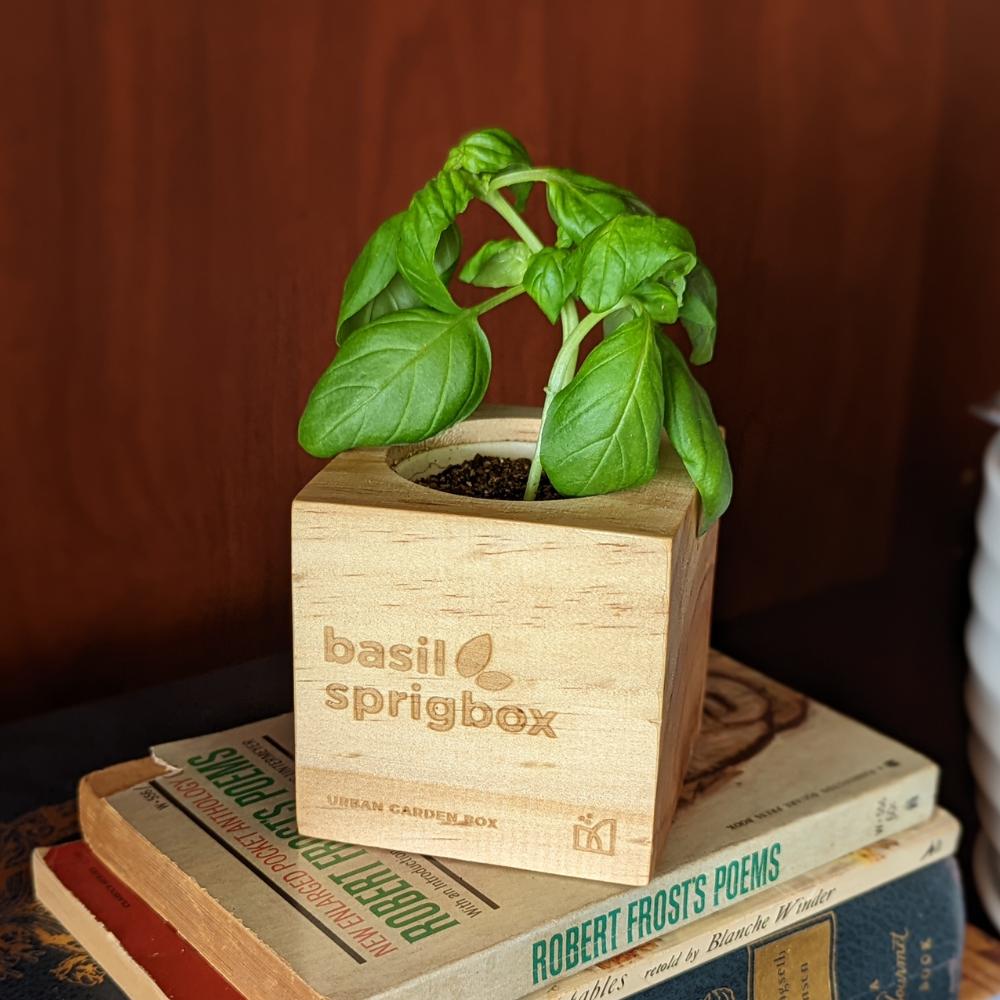5 Reasons to Plant Carrot Seeds This Spring
Spring is a season that brings forth new beginnings, vibrant colors, and a renewed sense of life. It is the perfect time to indulge in the joys of gardening and nurture the earth with seeds that promise a bountiful harvest. Among the many vegetables you can choose to grow, carrots stand out as a versatile and rewarding option. With their crisp texture and sweet flavor, carrots not only enhance the taste of various dishes but also offer a plethora of health benefits. In this blog post, we will explore six compelling reasons why you should consider planting carrot seeds this spring.

1. Health Benefits of Carrots
Carrots have long been hailed as a nutritional powerhouse, and for good reason. Packed with essential vitamins, minerals, and antioxidants, these humble root vegetables offer a wide range of health benefits. One of the standout features of carrots is their high beta-carotene content. Beta-carotene is converted into vitamin A in the body, which is crucial for maintaining healthy vision, especially in low-light conditions. Consuming an adequate amount of carrots can help prevent night blindness and promote overall eye health.
In addition to promoting good vision, the antioxidants found in carrots help protect against cellular damage caused by harmful free radicals. These antioxidants, such as beta-carotene, lutein, and zeaxanthin, play a significant role in reducing the risk of chronic diseases, including certain types of cancer and cardiovascular conditions. Carrots also contain a good amount of vitamin C, which supports a robust immune system and aids in collagen production for healthy skin.
Furthermore, carrots are an excellent source of dietary fiber, which is essential for maintaining a healthy digestive system. The fiber in carrots adds bulk to the stool, promoting regular bowel movements and preventing constipation. It also helps regulate blood sugar levels, making carrots a suitable food choice for individuals with diabetes or those looking to manage their blood glucose levels.
Another noteworthy benefit of carrots is their potential to aid in weight management. Due to their high fiber content and low calorie count, carrots can help you feel fuller for longer, reducing the likelihood of overeating. Including carrots in your diet can be a smart strategy for maintaining a healthy weight or even shedding a few pounds.
Incorporating carrots into your daily diet can have a significant impact on your overall well-being. From promoting healthy vision to boosting the immune system, supporting digestion, and aiding in weight management, the health benefits of carrots are truly impressive. So, why not take advantage of the spring season to plant carrot seeds and enjoy the rewards of this nutritious and versatile vegetable?
2. Cost-Effective and Convenient
When it comes to gardening, cost and convenience are important factors to consider. One of the key advantages of planting carrot seeds is the cost-effectiveness it offers. Carrot seeds are relatively inexpensive compared to buying carrots from the grocery store. By starting your carrots from seeds, you not only save money but also have the opportunity to grow a larger quantity of carrots for a fraction of the cost. This can be particularly beneficial for those who consume carrots regularly or have a large family to feed.
Moreover, growing carrots from seeds provides you with the convenience of having a fresh supply of carrots right in your backyard. Instead of making frequent trips to the grocery store, you can simply step outside and harvest the carrots you need for your meals. This eliminates the need to worry about running out of carrots or compromising on their freshness. Additionally, growing your own carrots allows you to have control over the cultivation process, ensuring that no harmful chemicals or pesticides are used, resulting in healthier and safer produce.
Obtaining carrot seeds is also hassle-free. They are widely available at local garden centers, nurseries, and even online seed suppliers. This accessibility makes it easy for both beginner and experienced gardeners to find the varieties they desire. With a wide range of carrot varieties to choose from, including traditional orange carrots, vibrant purple ones, and even heirloom varieties, you can explore the diverse flavors and colors that carrots have to offer.
Carrots are also known for their low-maintenance nature, making them a convenient vegetable to grow. They don't require excessive space and can be grown in containers, making them suitable for those with limited garden areas or even urban dwellers with only a balcony or patio. Carrots are relatively drought-tolerant, meaning they have a lower water requirement compared to other crops. This makes them a practical choice for regions with limited water availability or for individuals who prefer conserving water. Additionally, carrots have modest fertilizer needs, making them less demanding in terms of soil amendments and maintenance.
In conclusion, planting carrot seeds in your garden offers both cost-effectiveness and convenience. By starting from seeds, you save money and have the benefit of a fresh supply of carrots right at your fingertips. The accessibility of carrot seeds and their low-maintenance nature make them a practical choice for any gardener, regardless of experience or available space. So, why not take advantage of these advantages and embark on a rewarding journey of growing your own carrots this spring?
3. Culinary Versatility
Carrots are not only nutritious but also incredibly versatile in the culinary world. Their natural sweetness and crisp texture make them a delightful addition to various dishes, both raw and cooked. From salads to soups, stir-fries to side dishes, carrots lend their vibrant color and distinct flavor to elevate the taste and visual appeal of countless recipes.
One of the simplest and most popular ways to enjoy carrots is by eating them raw. Their natural sweetness and crunchy texture make them a refreshing and healthy snack on their own or when paired with dips like hummus or ranch dressing. Grated or shredded carrots can also be added to salads, providing a burst of color and a satisfying crunch. Their mild flavor complements a wide range of salad ingredients, allowing you to create endless combinations to suit your taste.
When it comes to cooked dishes, carrots are incredibly versatile. They can be added to soups and stews, imparting a subtle sweetness and adding depth to the flavors. Carrots hold up well to extended cooking times, making them an ideal vegetable choice for hearty winter soups, comforting stews, and savory broths. Whether you're making a classic chicken noodle soup or a rich beef stew, carrots can be a key ingredient to enhance the overall taste and nutritional value of the dish.
Roasting carrots is another popular cooking method that brings out their natural sweetness and intensifies their flavors. Roasted carrots can be enjoyed as a standalone side dish or incorporated into various recipes. Tossing them with olive oil, salt, and herbs before roasting allows them to caramelize and develop a slightly crispy exterior, while maintaining a tender and juicy interior. Roasted carrots can be served as a side dish alongside roasted meats, added to grain bowls or salads, or even pureed into a smooth and creamy soup.
Carrots also play a significant role in international cuisines, adding their unique touch to traditional dishes from around the world. In Moroccan cuisine, carrots are a staple ingredient in the popular tagine dishes, where they are often paired with aromatic spices, such as cumin and cinnamon, and cooked slowly to develop rich flavors. In French cuisine, carrots are a key component of the classic dish "carottes râpées," a refreshing grated carrot salad dressed with lemon juice and olive oil. Carrots are also commonly used in Indian curries, Chinese stir-fries, and Thai noodle dishes, showcasing their versatility and ability to adapt to various flavor profiles.
Furthermore, if you find yourself with an abundance of carrots, there are several methods to preserve them for future use. Canning carrots allows you to enjoy their goodness throughout the year, even when they are out of season. Pickling carrots is another popular preservation technique, creating tangy and flavorful pickles that can be enjoyed on their own or added to sandwiches and salads. Freezing carrots is also a convenient option, as they can retain their texture and flavor when properly stored. Additionally, you can make carrot-based sauces, purees, and even desserts, showcasing the versatility of this humble vegetable in the culinary world.
In conclusion, carrots offer incredible versatility in the kitchen, providing countless opportunities to create delicious and nutritious meals. Whether enjoyed raw, cooked, roasted, or incorporated into international cuisines, carrots bring their unique flavor and vibrant color to a wide range of dishes. Their adaptability allows them to shine in salads, soups, stews, side dishes, and even desserts. So, don't limit yourself to the usual carrot preparations; let your imagination run wild and explore the culinary possibilities that carrots have to offer.
4. Fun and Educational Activity
Gardening is not only a rewarding hobby but also a fun and educational activity that can be enjoyed by people of all ages. Involving children in gardening, especially when planting carrot seeds, can be an enriching experience for both parents and kids alike. It provides an opportunity to teach children about the life cycle of plants, instilling in them a sense of wonder and appreciation for nature's processes.
Planting carrot seeds with children allows them to witness firsthand how a tiny seed develops into a vibrant plant, eventually yielding delicious carrots. This hands-on experience teaches them about the importance of nurturing and caring for living things. As they water the seeds, watch them sprout, and tend to the growing plants, children develop a sense of responsibility and learn the value of patience. They understand that growth takes time and effort, and the joy of harvesting their own carrots becomes a rewarding experience.
Gardening can also serve as a stress-relieving activity for adults. Engaging in gardening activities, including planting carrot seeds, provides a therapeutic escape from the pressures of daily life. The act of tending to plants, whether it's pulling weeds, watering, or simply observing their growth, can be incredibly calming and soothing. Being in nature, surrounded by the sights, sounds, and smells of the garden, allows for a sense of tranquility and provides an opportunity to disconnect from the fast-paced world and find solace in a peaceful environment.
Furthermore, gardening offers a chance to connect with the environment and learn about sustainability. By teaching children about organic gardening practices, composting, and the importance of reducing chemical inputs, you instill in them an understanding of the impact of their actions on the planet. They learn about the delicate balance of ecosystems, the importance of biodiversity, and the role of pollinators in the garden. Through gardening, children can develop a deeper connection with the environment, fostering a sense of stewardship and promoting sustainable practices that can be carried with them into adulthood.
Gardening also provides an opportunity for families to spend quality time together, away from screens and distractions. Planting carrot seeds, tending to the garden, and harvesting the carrots become shared experiences that create lasting memories. It's a chance for parents and children to bond, work together as a team, and celebrate the fruits of their labor.
In conclusion, planting carrot seeds is not only a productive activity but also a fun and educational experience for both children and adults. Gardening offers valuable life lessons, such as responsibility, patience, and a deeper connection with nature. It provides a therapeutic escape from the stresses of daily life and promotes sustainable practices that benefit the environment. So, involve your family in the joy of planting carrot seeds this spring and watch as your garden grows, both in terms of delicious carrots and cherished memories.
5. Continuing Education and Sustainability
Planting carrot seeds not only offers immediate benefits but also provides an opportunity for continuous learning and promoting sustainability. As you embark on your gardening journey, you can delve deeper into the world of horticulture and expand your knowledge and skills.
Gardening exposes you to various aspects of plant biology, soil health, pest management, and organic gardening practices. By exploring different resources, such as books, online courses, and local gardening clubs, you can enhance your understanding of plant cultivation techniques, companion planting, and natural pest control methods. This continuous education allows you to become a more knowledgeable and successful gardener, ensuring that your carrot plants thrive and produce a bountiful harvest.
Furthermore, planting carrot seeds can be an opportunity to contribute to sustainability efforts and make a positive impact on the environment. By adopting organic gardening practices, such as avoiding synthetic fertilizers and pesticides, you can create a healthier ecosystem in your garden. Organic gardening promotes the use of natural and sustainable methods, such as composting, crop rotation, and attracting beneficial insects, which contribute to the overall health of your garden and reduce harm to the environment.
In addition, growing your own carrots at home reduces the carbon footprint associated with the transportation and storage of commercially grown produce. By opting for homegrown carrots, you minimize the environmental impact of long-distance shipping, packaging waste, and energy consumption. This small step towards self-sufficiency and local food production aligns with the principles of sustainability and reduces the strain on natural resources.
Moreover, growing carrots can enhance biodiversity in your garden. Carrots attract beneficial insects, such as ladybugs and lacewings, which feed on harmful pests like aphids and caterpillars. By creating a habitat that supports a diverse range of organisms, you contribute to the overall health and balance of your garden ecosystem. This, in turn, reduces the need for chemical interventions and fosters a more sustainable and resilient garden environment.
By embracing the principles of continuous education and sustainability, your carrot gardening journey becomes more than just a personal endeavor. It becomes an opportunity to make a positive impact on the environment, contribute to the local food system, and inspire others to follow suit. Sharing your knowledge and experiences with friends, family, and community members can create a ripple effect, encouraging more people to embrace gardening as a sustainable and rewarding activity.
In conclusion, planting carrot seeds goes beyond the act of growing a vegetable in your garden. It offers an opportunity for continuous learning, personal growth, and promoting sustainability. By expanding your knowledge of horticulture, adopting organic gardening practices, and contributing to biodiversity, you become an active participant in creating a greener and more sustainable future. So, as you plant your carrot seeds this spring, let your journey be guided by a commitment to education, sustainability, and making a positive impact on the environment.
Conclusion
In conclusion, planting carrot seeds this spring offers a multitude of benefits that make it a worthwhile endeavor. From the numerous health advantages of consuming carrots, such as supporting eye health and promoting a healthy cardiovascular system, to the cost-effectiveness and convenience of growing your own supply, carrots are a vegetable that packs a powerful punch.
The culinary versatility of carrots allows them to be enjoyed in a variety of ways, whether raw, cooked, roasted, or incorporated into international cuisines. Their natural sweetness and vibrant color bring a delightful touch to salads, soups, stews, and side dishes, making them a versatile ingredient in the kitchen. Furthermore, the ability to preserve carrots through canning, pickling, freezing, and creating sauces and purees ensures that you can enjoy their goodness throughout the year.
Beyond the tangible benefits, planting carrot seeds provides a fun and educational activity for the entire family. Involving children in gardening teaches them about plant life cycles, responsibility, and patience, while also fostering a deeper connection with nature. Gardening itself serves as a stress-relieving hobby for adults, offering a therapeutic escape and promoting mindfulness. It also provides an opportunity to learn about sustainable practices and the importance of organic gardening to protect the environment.
Gardening with carrot seeds not only brings personal satisfaction but also contributes to a sustainable and eco-friendly lifestyle. By growing your own food, you reduce your carbon footprint, minimize packaging waste, and support local food production. Additionally, organic gardening practices promote soil health, biodiversity, and the use of natural pest control methods, creating a harmonious and sustainable garden ecosystem.
So, seize the opportunity this spring to plant carrot seeds and embark on a journey of growth, nourishment, and connection. Whether you have a sprawling backyard or a small balcony, carrots can be grown in various spaces and bring joy and vitality to your life. As you witness the seeds sprout, the plants flourish, and the vibrant orange carrots emerge from the earth, you will experience the satisfaction of growing your own food and reaping the rewards of your efforts.
Incorporating carrots into your gardening plans not only enhances the beauty and productivity of your garden but also contributes to your overall well-being. So, grab your gardening tools, get your hands dirty, and let the magic of planting carrot seeds unfold in your own backyard. Your body, your taste buds, and your soul will thank you for it.







